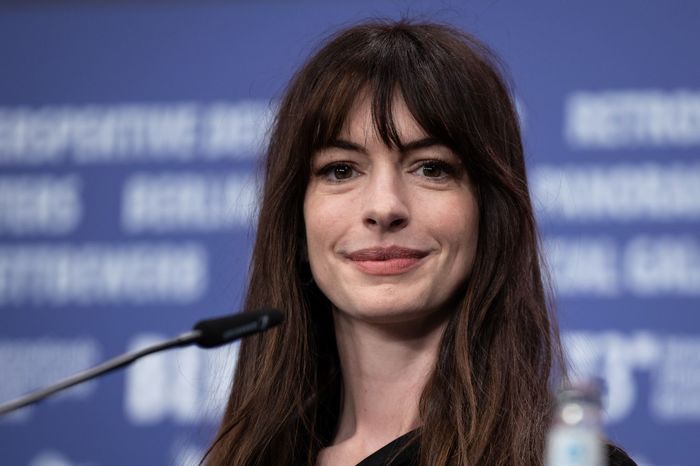How to do a press tour the wrong way
Gina Stock examines the It Ends With Us controversy – and why it may not be such a disaster

Heading to the cinema to see It Ends With Us, starring (and produced by) Justin Baldoni and Blake Lively, felt bittersweet. After Lively’s long run as a fairly unproblematic celebrity, particularly favoured for her Met Gala looks, these past weeks have seen her reputation take a hit. There seems to be many lessons to learn in careful film marketing that both Baldoni and Lively will be learning all too quickly.
It Ends With Us is a story about domestic violence, and its cyclical entrapment of women from generation after generation of psychological and physical trauma. The film does well at portraying the subtleties of abuse, albeit with slightly artificial dialogue, and the resolution is satisfying, and definitely pulls at the heartstrings. There were other interesting points of conflict in the film. The soundtrack, Praise You by Fatboy Slim, again, coupled with Skinny Love by Birdy, were not thrilling choices, and the design of Lively’s character, apparently done by her, consisted of mismatched and oversized garments which looked as if they were pulled from a confused cottagecore Pinterest board.
“most cinema-goers aren’t bringing a critical eye to the film, but rather to the actors”
However, unfortunately most cinema-goers aren’t bringing a critical eye to the film, but rather to the actors, thanks to the controversy caused by Baldoni and Lively. Lively and Baldoni have rarely been seen together on the press tour, with Baldoni notably absent from promotional material on Vanity Fair. This has led to speculation that their creative differences have separated them in a strange parallel of the Don’t Worry Darling press tour. Lively topped off the controversy when she decided to promote the film by encouraging us to “grab your friends, wear your florals and head out to see it,” and used the film to promote her new haircare line.
There are obvious issues with this carefree statement for a film about domestic violence. Lively can’t excuse herself as simply a happy-go-lucky actor either, as she is named in the film credits as a producer. A comparison can be made, and has been made on many TikTok pages, between this statement at the hugely successful Barbie press tour last year, where dressing up was also encouraged. However, the internet has decided that dressing up for a film about patriarchal restriction was okay, but for a film about domestic violence it is not.
“perhaps the motto ‘any publicity is good publicity’ rings true this time”
The latest on this controversy is that Justin Baldoni has allegedly hired Johnny Depp’s crisis PR manager, signalling things are getting bad. But is this emerging situation harming, or indeed helping, the film’s overall success? The film, according to Vulture, has usurped Deadpool and Wolverine (produced by Lively’s husband, Ryan Reynolds) earning over $100 million globally. Even I am a prime example of internet controversy leading to success, as my £6.30 student ticket, bought shortly after Lively’s confused marketing statements, joins these huge statistics.
However, comparing this tour to the Barbie press tour perhaps reveals that film marketing is a game in striking a careful balance. Just like in the film itself, the line between entertainment and sensitivity on press tours must be drawn carefully, and it remains entirely subjective. For me, the Barbie tactic of getting women to wear pink and stand in boxes at the cinema was entirely dystopian and missed the revolutionary point that could be extracted from Greta Gerwig’s original concept. The internet is understandably outraged at the promotional tactic of wearing “florals” to a film about domestic violence, although perhaps Lively’s point was to make something positive of a difficult topic. Both tours have been successful in boosting the numbers at the cinema, albeit for different reasons, but perhaps the motto ‘any publicity is good publicity’ rings true this time. Baldoni and Lively have little to worry about in terms of film success, even in the allegedly dark ages of ‘cancel culture.’
 News / SU reluctantly registers controversial women’s soc18 December 2025
News / SU reluctantly registers controversial women’s soc18 December 2025 Features / Should I stay or should I go? Cambridge students and alumni reflect on how their memories stay with them15 December 2025
Features / Should I stay or should I go? Cambridge students and alumni reflect on how their memories stay with them15 December 2025 News / Dons warn PM about Vet School closure16 December 2025
News / Dons warn PM about Vet School closure16 December 2025 News / Cambridge study finds students learn better with notes than AI13 December 2025
News / Cambridge study finds students learn better with notes than AI13 December 2025 News / Uni registers controversial new women’s society28 November 2025
News / Uni registers controversial new women’s society28 November 2025










